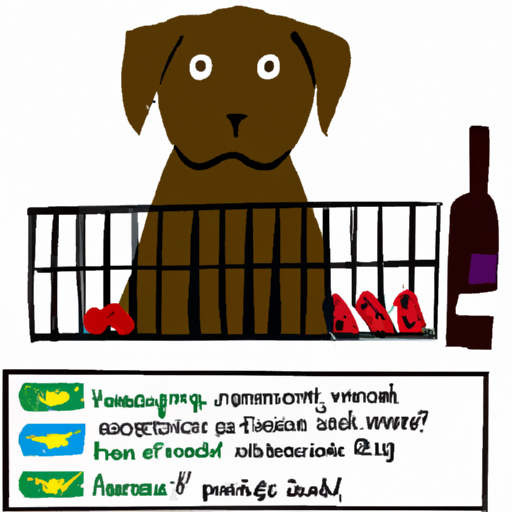As a devoted caregiver to your canine friend, it’s crucial to recognize that not all foods suitable for human consumption are safe for dogs. This guide will help you understand which foods are off-limits for your furry friend.
1. Chocolate
Chocolate is one of the most common foods that are poisonous to dogs. It contains theobromine, a stimulant that dogs cannot effectively metabolize.
- Milk chocolate: 44mg of theobromine per oz
- Dark chocolate: 150mg of theobromine per oz
- Cocoa powder: 800mg of theobromine per oz
Symptoms of theobromine poisoning in dogs include restlessness, hyperactivity, diarrhea, vomiting, increased heart rate and seizures.
2. Alcohol
Alcohol has the same effect on a dog’s liver and brain that it has on humans. But it takes far less to do its damage. Just a little can cause vomiting, diarrhea, central nervous system depression, problems with coordination, difficulty breathing, coma, even death.
3. Onions and Garlic
Onions, garlic, chives, and leeks are part of the Allium family and are poisonous to dogs in any form, whether raw, cooked, dried, or powdered. They contain compounds that can cause gastroenteritis, anemia, and serious damage to the red blood cells.
4. Caffeine
Caffeine is extremely harmful to dogs and, unfortunately, dogs are more likely to consume it by accident. In large enough quantities, it can lead to death.
5. Grapes and Raisins
Grapes and raisins have proved to be very toxic for dogs no matter the dog’s breed, sex, or age. In fact, grapes are so toxic that they can lead to acute sudden kidney failure.
6. Avocado
Avocados contain persin, a fungicidal toxin, which can cause serious health problems — even death — in many animals. Dogs are somewhat resistant to persin, but they are not immune.
7. Xylitol
Xylitol is a type of artificial sweetener found in many sugar-free products, like gum and candy, as well as some nut butters like peanut butter. Xylitol can cause insulin release, which can lead to liver failure.
8. Dairy Products
While not immediately life-threatening, dairy products can contribute to food allergies, causing uncomfortable skin itchiness, ear infections, and even gastrointestinal upset.
Frequently Asked Questions
1. Is it okay to feed my dog a small amount of these foods?
It’s best to avoid these foods entirely, as even small amounts can be harmful or toxic to your dog.
2. What should I do if my dog has consumed a harmful food?
If your dog has ingested a harmful food, contact your vet immediately. Also, keep an eye out for any signs of illness or discomfort in your dog.
3. Are there any safe human foods for dogs?
Yes, there are many human foods that are safe for dogs, such as carrots, apples, white rice, and lean meats. Always consult with your vet before introducing a new food to your dog’s diet.
4. Why are grapes and raisins toxic to dogs?
The exact reason why grapes and raisins are toxic to dogs is currently unknown. What is known is that they can cause kidney failure in dogs.
Remember, as a caregiver, it’s your responsibility to ensure the health and well-being of your canine companion. Keep these harmful foods out of their reach and always consult with your vet if you have any concerns.



